#prince wilhelm of Denmark
Explore tagged Tumblr posts
Text



“At a ball on the 12th, the Prince summoned his courage in the middle of a mazurka to express his feelings to the young Grand Duchess. She spoke to her mother who undertook to consult the Tsar. He took the young Prince out on the balcony and said: "We have a secret for you!" Whereupon he kissed him and received him into the bosom of the family. On the 13th the Tsar conferred on him the Order of St. Andrew, saying ‘I have also appointed him a Major-General: I can't after all give my daughter to a mere Captain!’”
- King Christian VIII of Denmark on the engagement of his nephew, Prince Friedrich Wilhelm of Hesse-Kassel, and Grand Duchess Alexandra Nikolaevna of Russia
#king christian viii of denmark#prince friedrich wilhelm of hesse-kassel#grand duchess alexandra nikolaevna#romanov#russia#quotes
47 notes
·
View notes
Text
"Regal Lookalikes: Uncanny Resemblances Among Royal and Imperial Figures" PART 2 💗🖇💎✨️😍
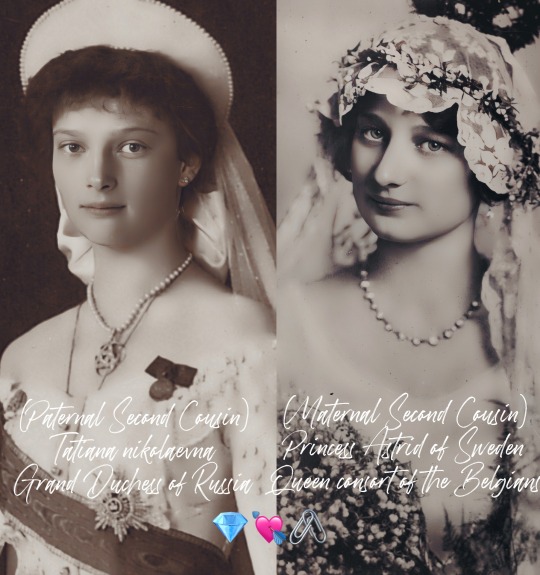



#tatiana nikolaevna#Queen astrid#olga nikolaevna#Alexandra Feodorovna#Charlotte of Prussia#Maria Feodorovna#dagmar of denmark#queen anne marie#August Wilhelm of Prussia#Prince Albert#prince Consort
18 notes
·
View notes
Text







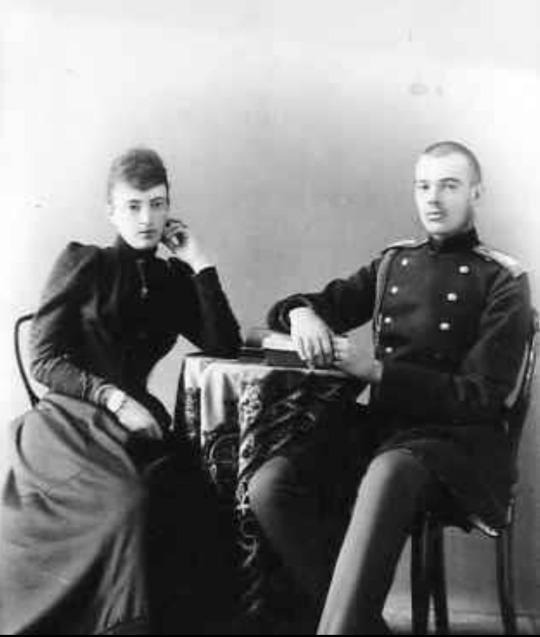
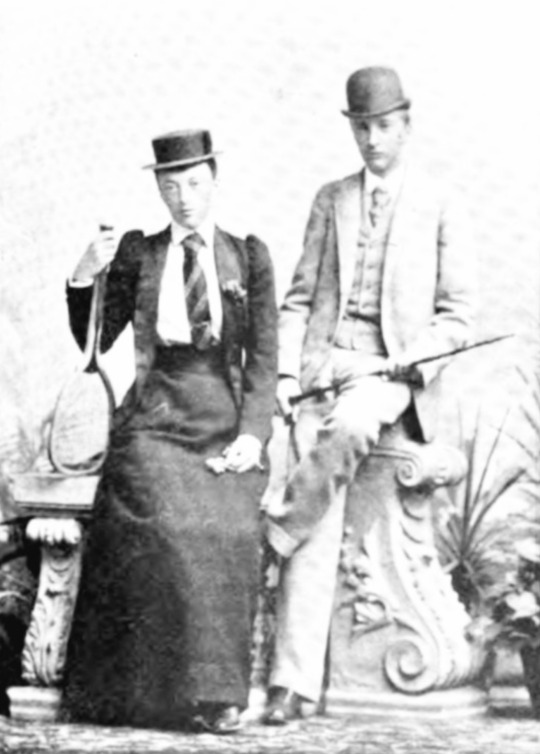


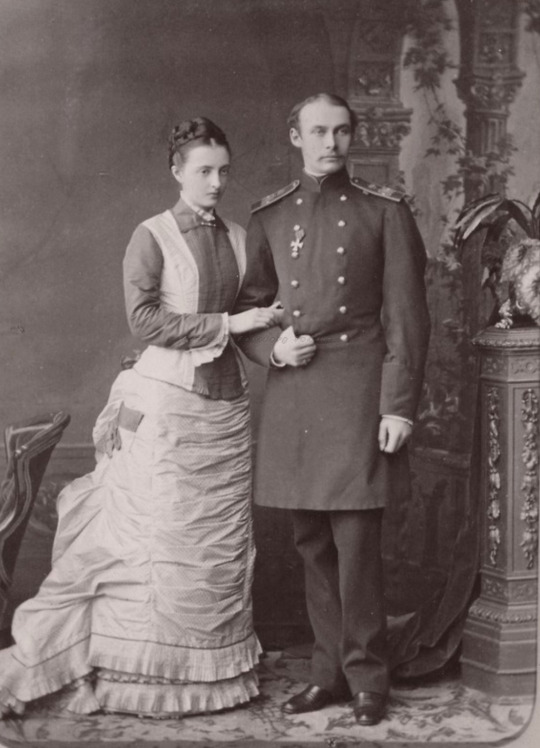

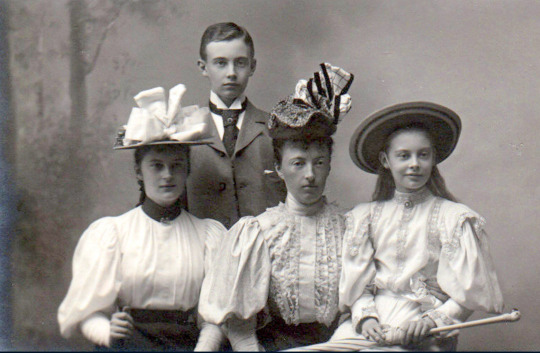



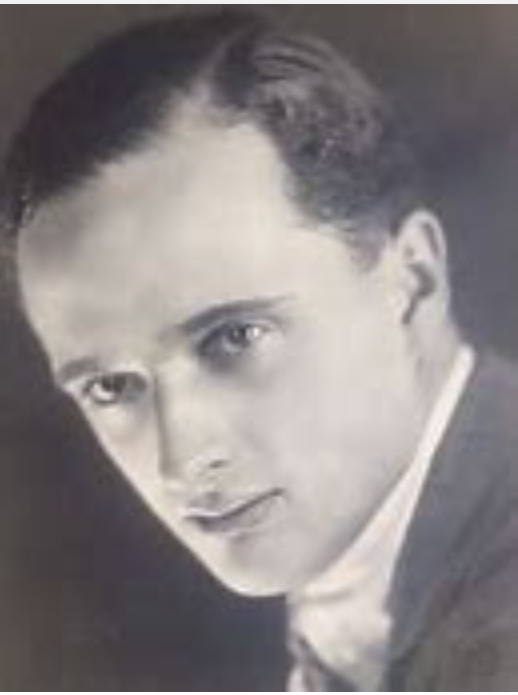


Photographs: 1. Grand Duke Mikhail Nicholayevich and his wife, Grand Duchess Olga Fyodorovna, with their two eldest children, Grand Duke Nicholas Mikhailovich and Grand Duchess Anastasia Mikhailovna; 2 and 3: Anastasia as a young girl; 4 and 5: Anastasia as a young woman. In one of the photos, she is wearing Russian court dress; 6. Anastasia with her brother Grand Duke Mikhail Mikhailovich (Miche-Miche); 7. Anastasia with her brother Grand Duke Georgiy Mikhailovich; 8. Anastasia with her brother Grand Duke Sergei Mikhailovichl 9. Anastasia with her youngest brother, who died at twenty, Grand Duke Alexis Mikhailovich; 10. Anastasia with her brother Grand Duke Alexander "Sandro" Mikhailovich; 11. Anastasia with her niece Princess Irina Alexandrovna; 12 and 13; Two photos of Anastasia with her fiancee/husband Grand Duke Frederick Francis III of Mecklenburg-Schwerin; 14. Anastasia with her three children; 15 and 16: Two pictures of Anastasia; 17: Anastasia's three children and their spouses: From left to right: Her daughter Alexandrine of Mecklenburg-Schwerin with the future King Christian X of Denmark, Her son, Frederick Francis IV with Alexandra of Hanover and Cumberland, and her daughter Cecilie of Mecklenburg-Schwerin with Crown Prince Wilhelm; 18. Her illegitimate son Alexis Louis de Wenden; 19: Villa Wenden in Nice; 20. The formidable Grand Duchess Anastasia Mikhailovna.
The other Anastaisa
Grand Duchess Anastasia Mikhailovna was born in 1860, the second child and only daughter of Grand Duke Mikhail Nicholaevich and Grand Duchess Olga Feodorovna (nee Princess Cecilie of Baden.) Anastasia was a granddaughter of Nicholas I. The better-known Anastasia (the daughter of Nicholas II) would be born a little over a half-century later, promising to be just as indomitable as her predecessor (she did not have the chance to fulfill that promise.)
Stasi (as her brothers called Anastasia Mikhailovna) was her father's favorite child. Her brothers worshipped her. Her mother was the disciplinarian of the house. The boys were allowed to see their sister only on Sundays.
Anastasia married Frederick Francis III, Grand Duke of Mecklenburg-Schwerin, at 19. Frederick Francis was Grand Duchess Maria Pavlovna, the Elder's brother. He had very poor health throughout his life; he had asthma and multiple allergies and rashes, and he needed to live during extended periods in the warmer climate of the Mediterranean rather than in Northern Europe; this was just fine with Anastasia, who would never adjust to her adoptive country or gain the affection of the people there. The couple established Villa Wenden in the South of France, and she would live in that area of the world most of her life. Frederick's homosexuality was known throughout Europe, but the couple seemed to have gotten along well. Anastasia spent lavishly at the casinos, and Frederick Francis was glad to provide her with the funds. When the Grand Duke died, she said: "On this day, I have lost my best friend."
They had three children, and all married very well:
Duchess Alexandrine of Mecklenburg-Schwerin (1879 –1952); married King Christian X of Denmark. They had two sons.
Frederick Francis IV, Grand Duke of Mecklenburg-Schwerin (1882 –1945), married Princess Alexandra of Hanover and Cumberland. They had five children.
Duchess Cecilie of Mecklenburg-Schwerin (1886 –1954.) She married Wilhelm, the German Crown Prince. They had six children.
Up to the death of her husband, Anastasia's life had transcurred without scandal. However, a few years later, she began an affair with Vladimir Alexandrovitch Paltov, her secretary. She soon became pregnant by him and attempted to hide that fact by claiming she was suffering from a tumor. She claimed to have chickenpox when she delivered the child. Her son, Alexis Louis de Wenden, was born in Nice in 1902. She was able to bring him up herself and wrote to him daily when he was away at school. After the scandal became public, she was advised never to live near her daughter, now the Crown Princess of Germany (she was given special permission to visit her daughter for the birth of her first grandson.)
After her father had a stroke, he went to live with Stasi in Villa Wenden. As the senior member of the Romanov clan, "Uncle Misha" received many visitors, including the Tsar. At least one of her brothers was in residence at Villa Wenden at any given time. When her father died in 1909, Anastasia inherited an enormous fortune. She continued to live as she wished, gambling heavily, going to the theater, and dancing.
World War I split the family apart. Her son was the reigning Grand Duke of Mecklenburg-Schwerin, her daughter was the German Emperor's daughter-in-law, she was a Russian Grand Duchess, and her Russian family was fighting on the opposite side. She settled in neutral Switzerland. The war cost her son and daughter their (prospective) crowns. After the war, she returned to Nice. There she founded a charity to help Russian exiles. Vladimir Paltov was the charity's president, perhaps indicating that the relationship continued. She lived in Villa Fantasia in Eze, which is near Cannes.
Anastasia died suddenly after suffering a stroke in 1922. She rests in Ludwigslust next to her husband. All of her children have living descendants today, including her illegitimate son. She certainly lived as she wished. Which is something that the other Anastasia would have probably done should she have been given the chance.
#russian history#imperial russia#romanov family#Grand Duchess Anastasia Mikhailovna#villa Wenden#Grand Duke Mikhail Nikolayevich#Grand Duke Georgie Mikhailovich#Grand Duke Mikhail Mikhailovich#Grand Duke Alexander Mikhailovich#Grand Duke Nicholas Mikhailovich#Grand Duke Alexis Mikhailovich#Grand Duchess Olga Fyodorovna#Frederick Francis III Grand Duke of Mecklenburg Schwerin#Frederick Francis IV Grand Duke of Mecklenburg Schwerin#Duchess Cecilie of Mecklenburg Schwerin#Christian X of Denmark#Crown Prince Wilhelm of Germany#Alexis Louis de Wenden
22 notes
·
View notes
Text
Subtext and Culture, Young Royals, Season 3, Episode 2
Episode 2 starts days or maybe a week after episode 1. The curfews and phone ban is in place, so Wilhelm and Simon make the most of their one hour of phone sex talking.

Blink and you miss it: Wilhelm snapped a quick instant picture of himself and Simon at the palace in the last episode, using the camera we saw on his desk. The heart is still on his hand, so maybe it's the next day, or maybe he's been filling it in every day.
Cinematography: Intense red light typically symbolizes their mutual love, and this scene is overflowing with it.
Lost in translation: They both finish the phone call with "puss", which means kiss, but not exactly. It's more platonic, something you can say and do with your parents, or your kids, or end phone calls with. The other word for kiss, "kyss", is more romantic/sexual, and would be super weird to end a phone call with. Simon is using that word when he says he would kiss Wilhelm's collar bone birth mark.
Subtext: Of course Vincent doesn't believe anyone was bullied. He's the biggest bully, but what he does is just a joke, or the other guy deserved it. This is gonna be a recurring theme™ in this episode, how various characters look back on and remember, or choose not to remember, what happened to them.
Subtext: If you didn't pick up this meaningful glance, you're blind. The initiation porno was totally real, and Nils and August clearly remember it, and weren't as flippant about it as Vincent.
Culture: In Sweden, inner city schools are typically better and have richer students than the poorer schools out in the suburbs. This is the exact opposite of the typical US school demographical pattern.

Subtext: Wilhelm avoids Farima's question by evading it. Note that it does make sense that she doesn't know what's going on at these schools since she's an employee, she's not upper-class herself. Wilhelm's parents know though since they attended Hillerska, but they would of course never admit it either.
Culture: Ironically, this is exactly how the real-world Danish royal family handled the Herlufsholm scandal in 2022 involving prince Christian. Only when the media storm in Denmark got too intense did they pull him out of the school, while furiously denying knowledge of the abuse or that he was involved in any way.
Cinematography: We're in the cursed music room, but the light is soft and golden, and the scene is just cute. No fight this time.
Subtext: We're touching the theme™ again, but from Simon's perspective. He has the same outsider perspective we have; speaking up about abuse is always good, and if the school's closing because of it, that's an obviously good thing. There's plenty of scenes in this episode showing that most Hillerska students don't share this perspective, they really love their school, as fucked up as it is.

Subtext: Although it sounds like a rehearsed PR line and Felice is thinking about her girl group here, it's gonna come true for her and Sara.
Subtext: Yuck. No further comment.
Cinematography: The immediate cut to Felice getting her aggressions out in gym class shows us exactly what she thought of what the principal said and how much it pissed her off.
Blink and you miss it: Simon audibly sniffs Wilhelm's hair.

Blink and you miss it: Micke made dinner for both of them, but in her depression, Sara ignores the cooked food (Pyttipanna, btw), and makes herself a cucumber sandwich instead.
Subtext: Micke is a man on a mission, and he is constantly steering the conversation towards helping Sara get her driver's license. For him, it's a way to make up for having been a shitty parent.
Culture: Sweden has long been a holdout of stick-shift cars, and if you don't do your practical test in a stick-shift, you'll get a restricted license, so it's not out of the ordinary for Micke to be teaching Sara how to drive one. However, automatics have seen a sharp rise in the last decade, and in 2024 automatics will finally overtake them.
Culture: The green ÖVNINGSKÖRNING sign is compulsory in Sweden if a car is being driven by someone on a learner's permit, with a parent or friend as the instructor. There's also a red version of the sign, which indicates it's a student driver with a professional instructor in a dual control car.

Cinematography: The room is filled to the brim with things to do, there's a bazillion board games, they have books, magazines, fidget thingies, they're drowning in stuff, and yet the girls are still soooooo boooored just because they don't have their phones. Except Madison, who is knitting.
Subtext: Here comes the theme™ again, and Fredrika is firmly in camp denial. Everyone else is just lying and exaggerating! The wheels are starting to turn in Felice's head though.
Subtext: Nils and August are finally talking about the initiation without Vincent being present, and they can finally be honest about what they actually thought about it. It happened, they didn't like.
Subtext: Their idea of fixing it however is not to go out publicly and talk about it, but to just quietly stop the tradition, hoping they'll be the last ones. (Since there are no second-year students in the show, we have no idea what happened to them, so we're just gonna ignore that.)
Subtext: And here comes the reason that August wanted to put a stop to it. He was completely humiliated by it, and he doesn't want anyone else to know that he was humiliated, because that just makes it worse. This is also the reason that traditions like this keep on going, no-one wants to blow the whistle on it, because everyone was abused, everyone was a victim, it's hard for abuse victims to speak up.
Cinematography: The talk with Nils triggered an anxiety attack for August, and being inside his small room doesn't exactly help. Him going so close to the camera that he almost bumps into it really shows how he feels like the walls are closing in on him.

Culture: This, kids, is a standard Swedish landline telephone jack. For the longest time I thought phone jacks looked like this everywhere, but it turns out that this particular design was only used in Sweden and Iceland(!?!). You won't find these in newer buildings because landlines are pretty much dying out, and if there are phone jacks they'll probably be using the much more common RJ-11 standard.
Culture: This, kids, is an Ericsson Diavox phone. The former government phone monopoly in Sweden, Televerket, only allowed certified and approved phones to be used on the network, and they only approved a very small set of phones, so everyone had pretty much the same phones in their homes. However, in the 1980's the market started getting flooded with "illegal" phones from other countries, so the monopoly simply stopped enforcing the rule, and you could finally, finally, plug in that novelty Garfield phone that you always wanted.
Blink and you miss it: Sara is studying for her driving test, and she's reading about driving in the dark.
Subtext: We're gearing up for the main plotline of the season, dropping more hints that maybe Wilhelm's image of Erik wasn't complete, and what August says sows some seeds of doubt in him.

Subtext: This song is objectively not very good, please don't kill me, but it is very sixteen-year-old-boy-just-singing-from-his-heart, not thinking about the text.
Subtext: Simon isn't wearing anything purple, but just after he posts his song video, he picks up a purple shirt, drops it immediately, and then the camera lingers on it. Colour theory goes brrrrrrrr. He thought about Wilhelm, and then stopped because his music is more important to him or something?
Subtext: Unlike Simon, Wilhelm immediately understands how problematic the text is for him, and how people will interpret it...
Subtext: ...but since he doesn't want to hurt Simon's feelings, he lies about why he thinks the song was a very, very bad idea. And he cushions it by telling Simon that he thinks the song is jätte-jätte-bra. Giant-giant-good.
Subtext: Yes, but also no, and someone from the court really should have given Simon some media training and explained to him why he has to be very careful about what he posts. But it's drama fuel, which is why this disaster is allowed to happen.
Subtext: A nice little throwback to season 1, this is exactly what Erik told Wilhelm in the first episode, about making sure that their public image is carefully curated.

Subtext: That's some on-the-nose foreshadowing there, since Felice is one of the main causes for the school ultimately closing.
Subtext: We're back to the theme™, Fredrika is saying pretty much the same thing as Vincent. It didn't happen, and if it did, it wasn't that bad.
Subtext: However, Felice isn't playing along this time, she's starting to speak up about the issues, and the result is a long, awkward silence, because her friends are not willing to do the same.
Subtext: Wilhelm and the rest of the rich kids are of course all wearing pretty expensive high-end hiking gear, in contrast with Simon who is simply wearing one of his usual hoodies and his usual winter jacket that we've seen before. That's a damn fine jacket from Fjällräven, btw, the same company that makes the weirdly globally popular Kånken backpacks.

Blink and you miss it: Henry is getting dragged for his actually quite reasonable objection to the tent groupings.
Subtext: Felice physically distances herself from her friends, and joins Simon and Wilhelm, in a nice little foreshadowing of the show's ending.
Blink and you miss it: Did you miss the line in last episode where Ayub said they were also gonna go camping at Talludden with their classmates from Marieberg? Well, here they are, because they pitched their tents nearby, and decided to go check out the Hillerska camp. It's not just Rosh and Ayub randomly walking through the woods.
Subtext: In season 2, we learned that Stella has a crush on Fredrika that she thinks is one-sided, but Fredrika sure has some kind of reaction to seeing Stella being close with Rosh. Jealousy, perhaps? Not clear at this point in time.

Subtext: Read the room Fredrika, for fuck's sake. At least Wilhelm has started learning to recognize privilege. The other rich kids probably recognize their privilege, but they're mostly just enjoying how much better they are than the poor regular kids.
Subtext: But Wilhelm's still got a lot more to learn. Yes, technically he is forced to spend his summer studying, and technically it is a kind of work, but the underlying reasons are completely different. If he skips it or fails, nothing bad will happen to him, unlike the Marieberg kids who rely on their summer jobs to have any sort of spending money.
Lost in translation: Wilhelm's dad says that the queen is going to be "sjukskriven", which is more serious than someone deciding on their own to take some time off or to use some sick days. It means that a doctor has evaluated you and decided that you are not fit to work, and that if you're a regular person, you are eligible for sick pay for the foreseeable future.
Cinematography: Yeah, mommy is really sick and Wilhelm is feeling the weight of responsibility, but take a look at that sunrise! It's so pretty! Wilhelm is completely in shadow because trouble whatever, but look at how that light just pops, with the sky and the water and the sun on the trees! Beautiful!
305 notes
·
View notes
Text
Just rewatching the documentary and just before 4 mins in, Lisa is explaining to Omar her thought process for what will be the main dilemma/ crux of the show, and it made me realise what exactly Simon was saying when he broke up with Wille at the end of Episode 5. He was saying: I've seen what the monarchy does to you and how it hurts you, I've experienced it myself, so I have additional empathy for how that must feel for you. Also, I, too, am being hurt by it (see all of season 3 when he's not smiling with Wille). I thought I could try it out for your sake to see if I could handle it because you're worth it.
But after spending the birthday day with Prince Wilhelm and the Royal Court, he sees that it will continue to hurt both of them, and there will be no respite, things will only get worse. He has seen Wille get worse right in front of him on that day. It is poisoning Wille, and he is becoming someone he doesn't recognise. Simon decides that he does not want that to happen to either of them. The only thing he can do is leave the system so it can stop hurting him. Unfortunately, because Wille is entwined with Prince Wilhelm, it means he has to leave Wille too.
To me, by staying with Wille, Simon is condoning bad behaviour or the status quo by just going along with everything the Royal Court says while they both slowly deteriorate. So though he leaves Wille to save himself, he is also saving Wille because he is showing Wille that this is not alright, boundaries have to be put in place somewhere and Wille needs to start setting some boundaries for himself too. If Wille thought that Simon would stick around to support him and occasionally be someone he could lash out to, then he may not have felt the need to save himself from the monarchy. Because Simon is around to hold him up.
So for King Wilhelm truthers, Simon is required to know his place as an aid to the King, whilst suppressing his own pain and never putting pressure on the King by asking for help with his own issues. There is never a time when they would be equal in their relationship, even in private, because everything about Simon's values, ambitions, and passions would have to be deleted. King Wilhelm's needs would come first. This is what class does. It sets up hierarchies of certain humans' needs being more important than others and even that certain humans are superior/supreme to others. Therefore, to function, it needs lackeys who know their place to serve those on top. Hillerska, as an institution, is a mirror of Simon's relationship as a partner for the next king. Hillerska being closed is the equivalent of Lisa abolishing the monarchy. (By the way, there's a real-life incident of the 16 year old Prince of Denmark having to be removed from his elite school when issues of sexual abuse and other scandals came to light. This happened in 2022).
On a side note, this made me think about the Duke's role as consort and imagine that that would be Simon's role to model himself on. If we want Wille to remain as a Crown Prince and have his boyfriend, do we want Simon to become as bland and ineffective as the Duke is, where all of his focus is solely on the Queen's needs. Smoothing over any rough patches with innane conversation and totally neglecting and not 'seeing' his child. Simon deserves to be himself, as does Wille.
#young royals#young royals spoilers#wilmon#simon eriksson#prince wilhelm#lisa ambjörn#young royals forever#yr s3 spoilers#know your boundaries#love yourself enough to walk away#don't put up with mental abuse for love
307 notes
·
View notes
Text

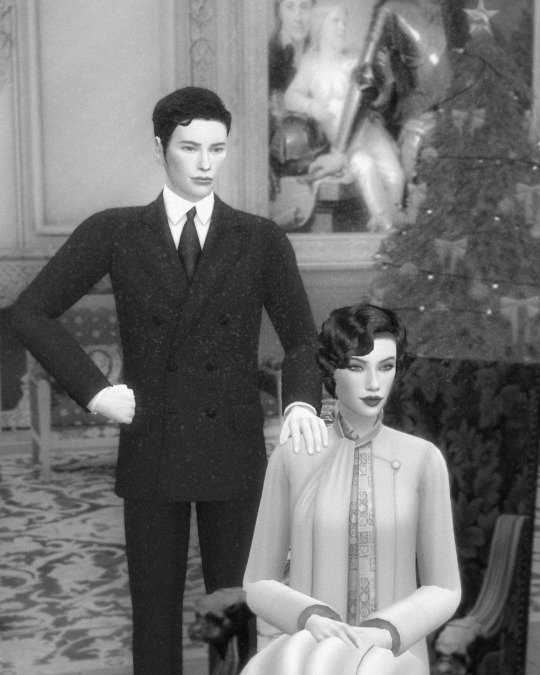



Crown Prince David was born on this day in 1896
Mentions of War & Miscarriage
—
When the new King, Frederick IX (b.1873) and his teenage wife, Princess Thyra of Denmark (b.1880) welcomed their first child on the 15th of April 1896, they had been married for just over 10 months. The baby was christened David Richard Christian Harald. During his childhood, the young prince became known as Dickie. The boy would become his Grandmother, the Dowager Queen Dagmar’s favourite grandchild,even after the birth of his siblings; Mary, Charlene and Christian with her writing “my beloved Dickie is so young yet a true lion at heart.”
At eighteen, the young prince’s life would be interrupted by the First World War, following his father's decision to side with their second cousin, Wilhelm II of Germany in 1914. During the war Dickie would be stationed in Berlin as the official representative of Corrilea to the Kaiser. His mother Dagmar-whom detested her German cousins failed to compel her husband to not send him, writing to her father, Frederik VIII of Denmark, “Berlin and this war will destroy my innocent boy.” In 1917, following the Russian Revolution, Frederick IX stopped supporting Germany out of fear , but his mothers worries would not be relieved, for after the war, Dickie would return changed, no longer lively and fun, but “hardened and self-righteous”.
In 1919, Dickie would meet a young, but successful Upsanian-born French-British actress, Nicola DuGant. The prince would immediately become infatuated by the beautiful woman, and quickly began courting her, despite the disapproval of his family- this would lead to tensions within the Royal household, as the young Prince seeked to defy his father and take control of his own life. In 1923, he would propose to Nicola without his fathers permission. This caused the tensions to boil over in the autumn of that year, when Dickie brought “his Nicky” to meet his family. During a heated exchange, the Crown Prince threatened to abdicate his position, in order to marry the woman he loved, only after hearing this, did the King relent and grant his approval, likely just to stop a succession crisis from occurring. The pair were wed in the spring of 1925. Nicola was the first “commoner” to marry into the Corrilean Royal Family.
Despite the marriage's scandalous start, the pair seemed happy together and in 1927 had a son, Prince George Frederick James (later James V). The new prince's birth was traumatic for the Crown Princess lasting for almost forty hours, with major complications and scarring after the prince was finally delivered via cesarean. As a result for the next decade the couple would experience fertility issues, with Nicola having 12 miscarriages, before the birth of their daughter, Princess Madelyn in 1940.
On the 14th of June 1930, King Frederick IX passed away at 57, after contracting pneumonia. Dickie was sworn in as King moments later, choosing the regnal name Richard II, quoting “The name Richard reminds the public of Lionheart, it is powerful, manly— David reminds them of my great-grandfather, whom never got to be King”. The King's inauguration took place on the 1st of January 1931.
Dickie would oversee Corrilea during the Second World War, choosing to have the nation be a neutral state. However in 1940, Corrilea’s neutrality was breached as Nazi forces invaded the border. The Royal Family and government quickly fled to Britain and established a Government-in-exile at the Corrilean Embassy, while the Family stayed as guests of King George VI of the United Kingdom and lived at St James Palace during the war. The Corrilean Royal Family however, were not unscathed during the war, with Princess Mary’s husband – Robert Argyll, 4th Duke of Argyll and son, George, Earl of Harewood both enlisting in the British army and being killed in action in 1942 and 1943 respectively.
After the Allies took back Corrilea in 1945, the Royal Family returned to mass celebration, and the King, who had given public radio addresses to his nation throughout the duration of the war, was considered a hero, who gave the people morale and a “reason to fight” during the five year Nazi occupation.
As such, the King remained a popular symbol of nationalism and hope for the next ten years, as the nation recovered. In 1953, his son the Crown Prince George would marry his favourite goddaughter, Princess Eliazbeth of Schleswig-Wolfenbüttel-Kassel (b.1936). The Princess, while German, was born and raised in Britain, as her parents fled Germany at the beginning of the war and thus, was considered a good match.
An avid smoker all his life, Richard II would pass away in 1956, of lung cancer. His daughter Madelyn, married in 1965, nine years later to the German Royal — Ludwig III, Duke of Thena. The wedding caused controversy, with many claiming that Richard would have never supported the match as Ludwig's parents were Nazi’s during the war.
—
Inspired by the talented @warwickroyals.
#Corrilea.history#Corrilea.extras#theroyalsofcorrilea#ts4 royalty#ts4 royal family#sims 4 royalty#the sims 4#ts4 royal story#sims 4 royal simblr#sims 4#sims 4 royal family#sims 4 royal legacy
40 notes
·
View notes
Text


Prince Carl of Sweden, Prince Gustaf VI Adolf, King Gustave V, Nicholas, Alexei, Prince Wilhelm of Sweden, Queen Victoria of Sweden born Princess Victoria von Baden, Tatiana, Alexandra, Olga, Princess Ingeborg of Sweden born Princess Ingeborg of Denmark, Princess Astrid of Sweden, Princess Margaret of Sweden born Princess Margaret of Connaught, Princess Maria Pavlovna of Sweden. On the ground Princess Margaretha of Sweden, Maria, Anastasia and Princess Märtha of Sweden in the park of the Tullgarn Palace in Sweden, 15th June 1909.
#otma#romanov#olga nikolaevna#tatiana nikolaevna#maria nikolaevna#anastasia nikolaevna#alexei nikolaevich#alexandra feodorovna#nicholas ii
17 notes
·
View notes
Text










Tsarinas Consorts of Russia {15/16}: Maria Feodorovna (Princess Dagmar of Denmark).
"By the time Marie married Alexander, her father was Christian IX, King of Denmark, her elder sister Alexandra was married to the Prince of Wales, the future Edward VII, and her brother Wilhelm was King of Greece. Yet when she was born in 1847 the young Dagmar, as she was then called, could have expected little of this glory. Her family lived in relative poverty in a small grace and favour mansion in Copenhagen, minor cousins of Denmark's King Frederick. Their situation only improved in 1852, when the childless King adopted Christian as his heir. For the first five years of her life, therefore, Dagmar was almost a commoner. She could hardly fail to be aware of the luck behind her sudden elevation. She revelled in her good fortune; her vivaciousness would eventually make her the most eligible bride in Europe."
Faberge's eggs | Toby Faber.
(movies: A Royal Affair / Anna Karenina)
15 notes
·
View notes
Text




How the last Russian dynasty were related to European Monarchies (current and former):
The House of Savoy (Royal Dynasty of Italy-one of its claimants is Prince Aimone, 6th Duke of Aosta) and the House of Holstein-Gottorp-Romanov (Imperial Dynasty of Russia) were related, their common ancestors were Francis, Duke of Saxe-Gotha-Saalfeld, Emperor Paul I of Russia, and most recent common ancestor were King Christian IX of Denmark & Emperor Wilhelm I of Germany.
19 notes
·
View notes
Text
Faroe Gone Final Chapter Sneak Peak
So there's still lots of editing I need to do before I can post the whole thing, but with tomorrow looming I thought I'd share something "happy" and "cheerful" to distract y'all.
Have fun reading the beginning of the final chapter and hope you enjoy! 😇
Simon doesn't know if it's the sudden fog, his tears, or the fact that all he wants to do is be a fool and turn back around again—the first one, definitely the first one—but he drives back to Tórshavn at almost a snail's pace.
It doesn't matter. He has well over a day until the ferry makes its return journey to Denmark and nothing else to do except go over his time with Wilhelm again and again, replaying the good times and the pleasurable times and wondering if he could have said or done anything to change the outcome of his journey—other than realizing that all of his feelings were mere nostalgic illusion and fantasy, which of course turned out to not be the case.
Quite the opposite. Real Wilhelm was so much more than what Simon made him out to be in his head. There's so much he's missed. So much he doesn't know yet and which he desperately wants to find out.
It hurts, and yet there's nothing else Simon can do, no other choice which wouldn't hurt more sooner or later.
No. Simon tried. He did the best he could and that is enough. It has to be enough.
Simon had to leave while he still could.
The road ahead of him is empty, no one else in sight. No people, no cars, no sheep. Nothing except the wet, cold fog swallowing up everything and a rushing noise in his ears which might be the wind or the ocean or Simon himself.
Simon blinks away another tear and keeps driving, turning up the heat and hoping it will help.
It doesn't.
On the next island he passes a camper van. It's parked, and Simon thinks he can make out a brave tourist trying to take a picture, but he isn't sure. It's not as if there's much to see except an endless wall of grayish white.
Maybe that's the fascination.
Wilhelm told him that there are thirty-seven words for fog in the Faroese language, and while Simon laughed and told him to stop kidding, he's sure he's already experienced half of them, and it's only been two days.
Okay, that might be an exaggeration, but contemplating the uselessness of taking pictures of fog is a lot more bearable than lingering on the fact that he'll never get to be with Wilhelm again, never feel that satisfied ache in his muscles, not like this, and really how long can a grown man cry before he's all out of tears?
Pretty long he guesses.
Simon once stopped Ayub's baby daughter from attempting a daring escape on all fours, and Simon swears she was crying forever. Not that he blames her.
Crying is cathartic if it's anything, but if she could produce that many tears because of nothing more than a foiled plan to explore the stairway, then how many will Simon be able to shed before he's all wrung out? He’s a lot taller than her after all and guaranteed to not forget the reason for his tears even after being presented with some candy.
Simon doesn't want to know.
Simon wants to keep driving through this fog forever, because all that's waiting for him at its end is the mundanity of his never-changing life and a scandal revealing the Crown Prince to have been the victim of underage revenge porn thanks to his second cousin and presumed successor, and that is guaranteed to make it worse, to drag Simon’s name back into public awareness.
He should probably call home and warn his mom, warn Sara, but facing them will be torture of an entirely different kind, and also the investigative journalist they chose is a good one, one bound to build a case and not blindly believe her sources before going public, so there is still time.
Not too much though, as there is an impending deadline if the Royal Court and the Prime Minister are to be believed, or at least Simon would really prefer news of August’s deeds to overshadow him being taken into the line of succession.
Not that he’s so naive as to think a mere article can do more than delay the proceedings at best—although one can always hope—and ideally the journalist and whoever else gets a say in choosing the right time will see it the same way, but all of that is still more than half a week away, so why burden his family before he absolutely has to?
No, he's not going to call home yet, but maybe he should reserve a room before he gets back to the capital.
He decides to do it the old fashioned way and pulls over at the next opportunity. A viewpoint, or so he presumes the sign a few meters away from him would tell him if only it was clear enough to see.
He wipes at his cheeks and opens his phone. There are plenty of options for him to stay at. Small, privately owned places, holiday homes with kitchens and living rooms, quaint little hotels doing their best to sell their Nordic, rustic charm to tourists wealthy enough to make it there, and of course a camping ground, because unlike Sweden, the Faroe Islands don't allow one to set up camp anywhere else.
Simon doesn't choose any of them. He wants a warm but bland room, boring and inoffensive and as likely to be in Tórshavn as on the other side of the world.
Something as far from Wilhelm's colorful and most definitely handmade and expensive wooden furniture as he can get, and so he books himself a room at the first—and only—international hotel chain he can find, something he'd never do otherwise, and pretends that he's looking forward to it. The hotel has a fitness center after all and well over a hundred rooms. Simon is almost going to feel like back home in Uppsala.
Not.
He sighs and makes sure he received a confirmation for his booking, before he throws his phone onto the passenger seat and sighs again.
Somehow, magically, or rather because he's on a windy archipelago in the middle of nowhere, the fog is starting to clear. He can see a few meters of grass now, and then a cliff, and below it the cold, dark ocean pretending at being calm.
Simon wants the fog back, but when has he ever gotten what he wanted, and by the time he's back on the road he swears he can see a tiny patch of blue sky up ahead.
The hotel is on the outskirts of town and exactly as impersonal as Simon hoped it would be. He isn't hungry, and so he goes straight to his room and falls face first into bed.
The sheets are white and the pillows are white and they smell bland and clean and inoffensive, nothing at all like Wilhelm, and why would they?
Simon hates them. Simon also hates the hotel, but it's not as if he's in the mood for sightseeing, and as he isn't willing to take a shower yet—what? He's alone, no one's going to smell him, and isn't that the entire problem?—all that's left to do is turn on the TV, because he's for sure not touching his phone again any time soon.
Not when that would mean having it confirmed with every passing minute that he was a fool to leave Wilhelm his number. Wilhelm isn't going to call, but Simon would rather live in denial for as long as he can.
The TV does not greet him with an info screen as Simon expected, but an English speaking news channel, the volume turned up way too loudly, and Simon turns it off again as fast as he can.
Wallowing in self pity it is then.
Unfortunately Simon's usual answer to bouts of self-pity—angrily jerking off to thoughts of Wilhelm—is not an option right now, because Wilhelm is the entire reason for his misery, and so he grudgingly reaches for his phone after all and starts up a game which would work much better on a computer screen.
He's just about to finish off the newest boss, when a text message pops up.
If I do it, it reads. Then can we
The sentence stops halfway through, and Simon almost has a heart attack.
The delay in his reaction is enough for him to be killed instead, but it's not as if Simon notices.
Wilhelm. It has to be Wilhelm.
He taps the message, and while that makes it larger, it doesn't change the words.
He almost calls Wilhelm back right away, because Wilhelm is swaying, is reconsidering, and Simon wants that, he wants it so bad, to have Wilhelm back in his arms and his life, but also Simon already told Wilhelm that he can't be the only reason Wilhelm returns, that this is a life changing decision if there was ever any, and that Wilhelm needs to make it for himself and not for a hope of them maybe working out, and so he doesn't.
Instead he waits an excruciating minute and then another, just in case Wilhelm wants to add something or pressed send too soon, but no further message follows.
Simon curses and swears and kicks up his feet, because now he has hope again and that is great, but also torture. He doesn't want Wilhelm to get the wrong impression, doesn't want him to think that Simon wouldn't be willing to pick right up where they left off if he could—in the bedroom that is, not when it comes to fighting—and maybe they could also go on a date which has been nineteen years in coming.
Simon wants that. Simon really wants that. How can he not, now that he's had a taste, has spent time with Wilhelm, just Wilhelm, has had breakfast with him and done chores with him and played with his dog. Simon wants Wilhelm back, now more so than ever.
Simon knows he's an idiot, thinking of romance and dating when he just left the love of his life behind, and even if he hadn't, a returning Wilhelm would have much different things on his mind. He'd have to. He'd have no other choice. Things like his dying mother and the throne and the public reacting to his return after ten years in exile.
Wilhelm wouldn't have time for Simon, no matter how much Wilhelm would want him. Not for weeks and not for months. Simon would have to sneak into an assortment of palaces with the eyes of the entire nation on nothing but them if he wanted any time with Wilhelm at all, and Simon wouldn't want that. Simon doesn't want secrecy and sneaking and lies. Not that'd even be an option, what with the press and curious bystanders everywhere.
There is another option of course. The only one Wilhelm would ever consider coming back for. The one which at first glance sounds perfect because it means being with Wilhelm and standing by his side. It would also mean giving up everything else in Simon's life though, but what has he really got to lose? Why stop being foolish now?
Wilhelm told Simon that he's it for him. Wilhelm loves him. Simon's already traveled across an ocean. What's one tiny text message compared to that? Why can't he be selfish just this once and fuck the risk and the idiocy and the fear of what will be in one year? In five? In ten?
It all might end in disaster, but it might also not, and why should he be miserable if there's even the slightest chance at some fleeting happiness. After all it's not as if the email Wilhelm sent isn't bound to upend Simon's life anyway, and it's not as if Wilhelm is actually going to come.
Simon wants to be happy.
Simon wants to be happy and now there's a chance for it and so why not take it? He's done stupider things before, like coming here in the first place, so he might as well go all the way.
He doesn't text Wilhelm a yes, doesn't make any promises. He texts one word and one word alone, followed by a number, the name of the hotel and his room number, and maybe that's the biggest promise of all.
He doesn't regret it. He couldn't stay, not without making his inevitable departure even worse, but now he's done his part and the ball is in Wilhelm's court, all the balls are, and Simon is here and waiting.
For a ferry. For Wilhelm. For the life they could have had.
Fuck.
#it was editing this#or throwing myself a pity party#because for the first time ever#I could attend all the Eurovision events live#with nothing stopping me except my own morals and conscious#so clearly I'm boycotting it all#and that's the easy choice#no pity party for me#hello editing#I'm not saying Simon is staying at the Hilton Garden Inn#but I'm also not not saying that#yes Faroe Gone will have a happy ending#faroe gone#young royals#young royals fic#fic snippet#wilmon#fic update
52 notes
·
View notes
Text


“The death of this Grand Duchess took place a few hours after the birth of her child, after the mother had had the joy of hearing her baby's cry... they concealed his death from her. Her weakness increased; she bade farewell to her parents and to Fritz and her beautiful soul took flight like an angel to the heavenly mansions.”
- King Christian VIII of Denmark of the death of Grand Duchess Alexandra Nikolaevna of Russia, Princess Friedrich Wilhelm of Hesse-Kassel.
#king christian viii of denmark#grand duchess alexandra nikolaevna#prince friedrich wilhelm of hesse kassel#romanov#russia#quotes
18 notes
·
View notes
Text
Since we are officially half-way through the first round, here are some statistics for you:
Proportionally, the country that has been the most victorious is Russia, sitting at a 86% success rate (Prince Metternich ruined their perfect 100%)
The least victorious country so far is England, with a measly 38% success rate.
Five of the total 13 fictional characters have been eliminated.
The countries that have been eliminated are: Denmark, Sweden, Sardinia and the Papal States. They each had one nominee who lost in the first round.
Friedrich Wilhelm III of Prussia is the only crowned head of state to successfully make it through the first round on the left side of the bracket. Which included Napoleon I.
The largest margin of victory goes to Ida St. Elme, who absolutely trounced George Canning. The smallest margin goes to Richard Sharpe, who squeaked out a win with (what by my calculation was) two votes.
36 notes
·
View notes
Text




Happy 25th birthday to Princess Alexandra of Hanover!
Born on 20 July 1999, Alexandra Charlotte Ulrike Maryam Virginia is the of Princess Caroline of Monaco and Ernst August, Prince of Hanover, as well as a niece to Prince Albert Il of Monaco and a granddaughter to Prince Rainier Ill and Grace Kelly. She is currently thirteenth in the line of succession to the Monegasque throne.
On her father's side, she is a descendant of Queen Victoria of the United Kingdom, Wilhelm II, German Emperor, and King Christian IX of Denmark. Through her father, she was in the line of succession to the British throne until 2018, when she was confirmed into the Catholic Church.
She has half-siblings from her parents' previous marriages. From her father's previous marriage, she has two half-brothers, Hereditary Prince Ernst August and Prince Christian of Hanover. From her mother's previous marriage, she has two half-brothers, Andrea and Pierre Casiraghi, and one half-sister, Charlotte Casiraghi.
13 notes
·
View notes
Text

Princess Margaret Victoria Charlotte Augusta Norah of Connaught, Crown Princess of Sweden, Duchess of Scania and Prince Oscar Fredrik Wilhelm Olaf Gustaf Adolf, later King Gustaf VI Adolf of Sweden and their children: Prince Gustaf Adolf Oscar Fredrik Arthur Edmund, Duke of Västerbotten Prince Sigvard Oscar Fredrik Bernadotte, Count of Wisborg Princess Ingrid Victoria Sofia Louisa Margareta of Sweden, later Queen consort of Denmark Prince Bertil Gustaf Oskar Carl Eugén, Duke of Halland
British vintage postcard
#postal#oscar#gustaf vi adolf#sigvard#queen#margaret#augusta#bernadotte#bertil#sigvard oscar fredrik bernadotte#oskar#halland british#historic#ansichtskarte#norah#later#consort#ingrid#sepia#connaught#vintage#wilhelm#tarjeta#wisborg princess#eugn#gustaf#fredrik wilhelm olaf gustaf adolf#arthur#ingrid victoria sofia#princess
6 notes
·
View notes
Text
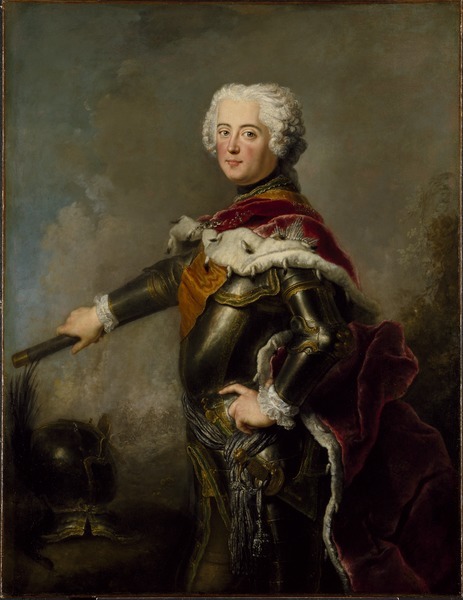

Friedrich der Große (r. 1740 - 1786)
'Old Fritz'
Friedrich's relationship with his father, Friedrich Wilhelm I, is an oft-discussed topic. It was marked by public and private abuses and emotional and physical in nature. While the King's beheading of the then-crown prince's friend was the culmination of this treatment, it was consistent over Fritz's adolescence. Denigrated for his effeminacy, physically assaulted, and denied all earthy respite; it is little wonder that Fritz attempted to flee his father's persecution the first chance he had.
In 1740, Friedrich led Prussia against its first bout against Austrian tyranny. Did we have any claim to Silesia? Not a one. Did we agree to the Pragmatic Sanction? Technically, yes. Did that matter to Old Fritz? It did not, and for that he brought Prussia out of the scrapheap and into history! Because of him Prussia will live on for centuries! ...What the hell is a Kaliningrad?
Many rumors abounded about Friedrich's paramours and proclivities. It's the burden of every great man to endure these sorts of challenges, you see. Some say his testicles were malformed or, even, nonexistent. Some say everything was in fine working order and he sired bastard children with a Madame von Wreech. Some - and this is most absurd, you will agree - even posit that he was a homosexual. I understand hating your wife all too well, but that does not mean 'fortune is a woman and I am not that way inclined' suggests anything improper! ...Voltaire wrote what (Note: I am concerned for your health -L)
Friedrich III (r. March 1888 - June 1888)
The 99-Day King
Surprisingly for a Hohenzollern, Friedrich took a relatively liberal stance to politics. Even more shocking was his pacifist streak that led him to oppose our wars against Denmark, Austria, and France. Do not let his heart fool you; even a Prussian pacifist is nothing to sneer at. In all three conflicts, he commanded his troops capably and treated his opponents with the utmost dignity.
There were many hopes pinned to Friedrich's reign, put there both by himself and his supporters. Alas, he ascended to the throne when he was already terminally il with laryngeal cancer. Push and push as liked, what reforms could a dying emperor make? The most significant aspect of his reign is what it may have been - and what it could have avoided.
We have received a letter, whose author only identified herself as an 'American woman.' It reads: 'I know Fritz is going to beat Fritz, but please look at him. Isn't he the most dreamy Hohenzollern you've ever seen? Those piercing eyes, that strong nose, that beard you could lose your hand in. So what if he didn't like his son? That a crime now in this family? Fritz, your wife is gone, but I know one English maiden who's still seeking a good man. HEY-O!' (Note: Burn this debauchery -L)
27 notes
·
View notes
Text



The Family of Prince Waldemar of Prussia, circa 1938
The portrait taken prior to the outbreak of WW2, showcased Prince Waldemar and his wife Princess Marie of Hesse and By Rhine alongside their three daughters and sons in laws. This photo would be the last time they would be pictured together.
—
CONTENT WARNING- mentions of WW1&2
—
Prince Waldemar and Princess Marie, were both the grandchildren of Queen Victoria. The pair wed in 1899. Waldemar as the son of the Frederick III of Germany, would support his brother Wilhelm II during WW1. After Waldemar’s death in 1940 Marie moved to France, but would flee to Britain at the beginning of Nazi occupation.
Their eldest daughter, Alix, would marry Louis-Karl, Grand Prince of Schleswig-Wolfenbüttel-Kassel in 1934 and have one daughter, Elizabeth- who would later become the Queen of Corrilea. The pair would escape Germany at the beginning of the war, staying in Britain.
Their second daughter, Sophie married Prince Hubertus of Saxe-Coburg and Gotha in 1936- an arranged marriage, given the Princes prior refusal to be wed. Despite their distaste for Adolf Hitler, the pair would join the Nazi Party at the beginning of the war. Hubertus, was an accomplished pilot, but in 1943 he would be killed in action on the eastern front, after his plane was shot down by Soviet forces. In 1945, Sophie was killed in a car accident.
The youngest daughter Xenia wed Prince Micheal of Greece and Denmark in 1937. The pair remained in Greece, choosing to flee to Crete with the rest of the Royal Family and Government-in-exile. They would have one daughter, Amalia- who later became Grand Duchess of Bauden.
#Corrilea.history#theroyalsofcorrilea#ts4 royalty#ts4 royal family#sims 4 royalty#the sims 4#ts4 royal story#sims 4 royal simblr#sims 4#sims 4 royal family#sims 4 royal legacy
27 notes
·
View notes